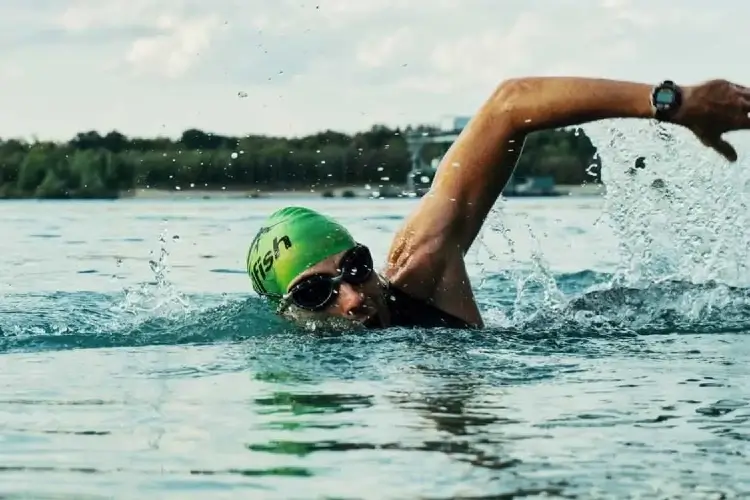Can you snorkel with swimming goggles? Absolutely! In fact, snorkeling with swimming goggles can enhance your underwater experience in many ways.
The Benefits of Snorkeling with Swimming Goggles
Improved Visibility
Swimming goggles provide a clear and unobstructed view underwater, allowing you to see the vibrant marine life and breathtaking coral reefs with ease.
Protection for Your Eyes
With swimming goggles, your eyes are shielded from saltwater in the ocean, debris, and harmful UV rays, ensuring a comfortable and safe snorkeling experience.
Comfort and Fit
Swim goggles are designed to fit snugly around your eyes, providing a watertight seal. This prevents water from entering and allows you to focus on enjoying the underwater scenery. And for guys with beard or mustache there is no need to shave for a proper fit (as is the case with snorkel or dive masks).
Easy Equalization
Some goggles come with built-in nose pockets, making it easier to equalize pressure while diving down or going deeper underwater.
Less Fogging
Many swimming goggles feature anti-fog technology, which helps prevent fogging and ensures clear vision throughout.
Convenience
Unlike traditional snorkeling masks, goggles are compact and lightweight, making them easy to carry and store. They are also suitable for various other water activities.
Cost-Effective
They are often more affordable than full-face snorkel masks, which makes them a budget-friendly option for snorkelers of all levels.
How to Choose the Right Swim Goggles for Snorkeling
There are a few factors to consider:
- Fit: Look for goggles that provide a comfortable and secure fit. Adjustable straps and silicone gaskets can help achieve a customized fit.
- Seal: Ensure that the goggles create a watertight seal around your eyes to prevent water from entering.
- Lens Type: Opt for tempered glass lenses for durability and clarity. Some goggles also offer tinted or mirrored lenses for enhanced visibility in different conditions.
- Anti-Fog Coating: Check if they have an anti-fog coating to prevent fogging during your snorkeling sessions.
- UV Protection: Look for goggles that offer UV protection to shield your eyes from harmful sun rays.
By considering these factors, you can choose the right swim goggles that best suit your snorkeling needs.
Tips for Snorkeling with Swimming Goggles
Snorkeling with swimming goggles can be a fantastic experience. Here are some tips to make the most of your snorkeling adventure.
1. Ensure a Proper Fit
Adjust the straps and check if the goggles fit snugly around your eyes. A proper fit helps prevent leaks and discomfort during your snorkeling session.
2. Keep the Lenses Clean
Before each use, rinse the lenses with fresh water to remove any debris or residue. This ensures clear visibility underwater.
3. Apply Anti-Fog Solution
If your swimming goggles do not have an anti-fog coating, consider using one to prevent fogging.
4. Practice Proper Equalization
If your goggles have built-in nose pockets, practice equalizing the pressure in your ears by gently blowing against the pinched nostrils.
5. Take Breaks
Snorkeling can be physically demanding, so remember to take regular breaks to rest and rehydrate.
6. Stay Safe
Always snorkel with a buddy, be mindful of your surroundings, and follow any local guidelines or regulations.
Common Misconceptions
There are a few common misconceptions about snorkeling with goggles that need to be addressed:
- Goggles are only for swimming, not snorkeling.
- Snorkeling masks are superior to swimming goggles.
- Goggles restrict your field of vision underwater.
In reality, swim goggles are suitable and beneficial for snorkeling, providing clear vision, comfort, and protection for your eyes.
Expert Advice
Using swimming goggles for snorkeling is a great choice for those who prioritize clear vision and eye protection. However, it’s essential to ensure a proper fit and choose goggles with features such as anti-fog coating and UV protection.
It’s important to note that snorkeling with goggles does have its limitations. While they provide a clear view underwater, they do not offer the same level of breathing comfort as full-face snorkel masks. If you plan on diving deeper or staying underwater for longer periods, consider using a snorkeling mask instead.

